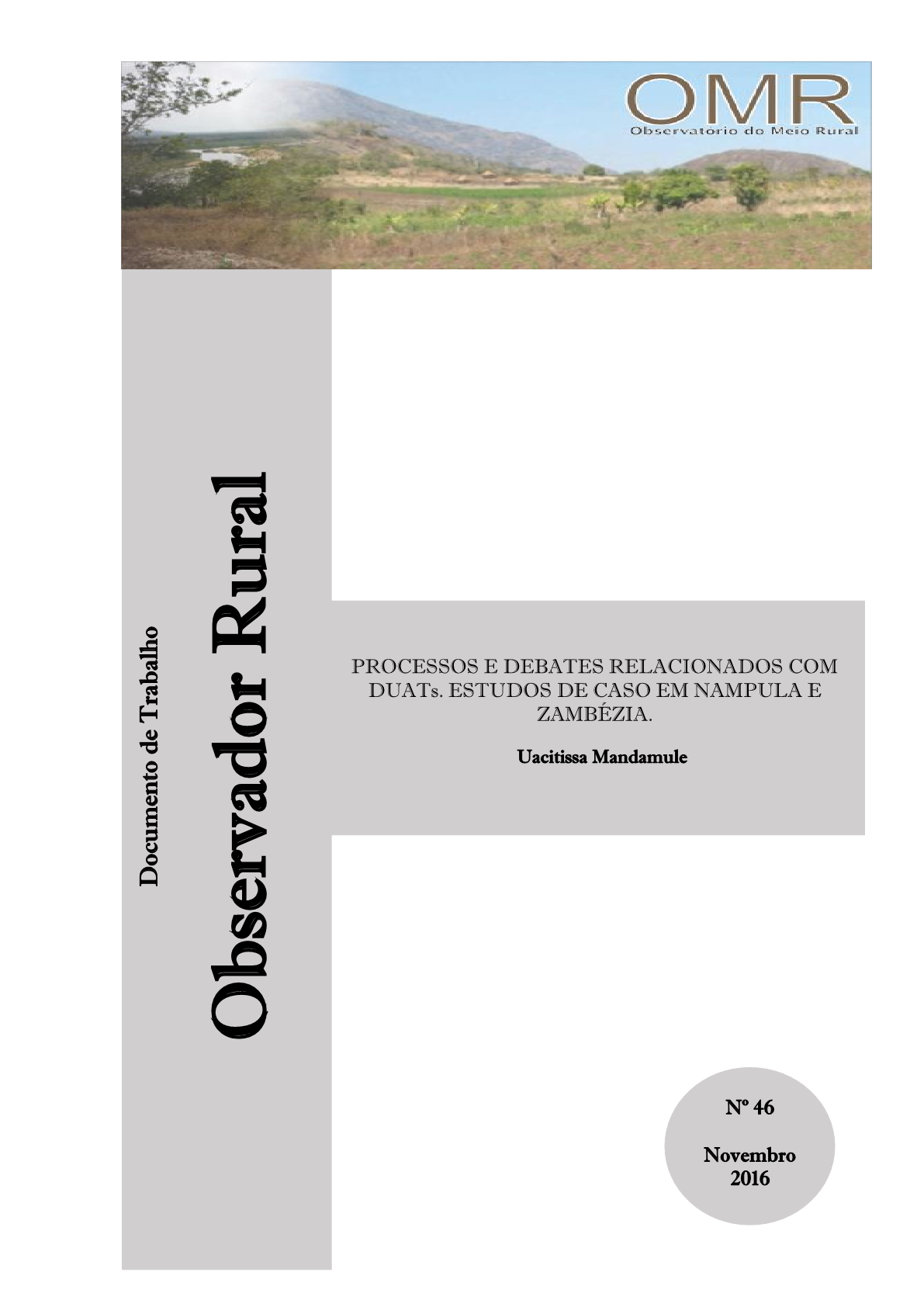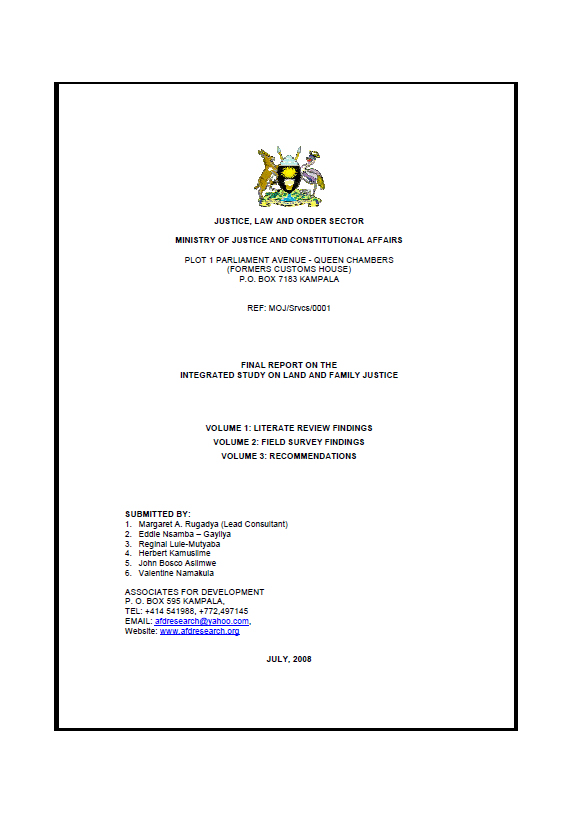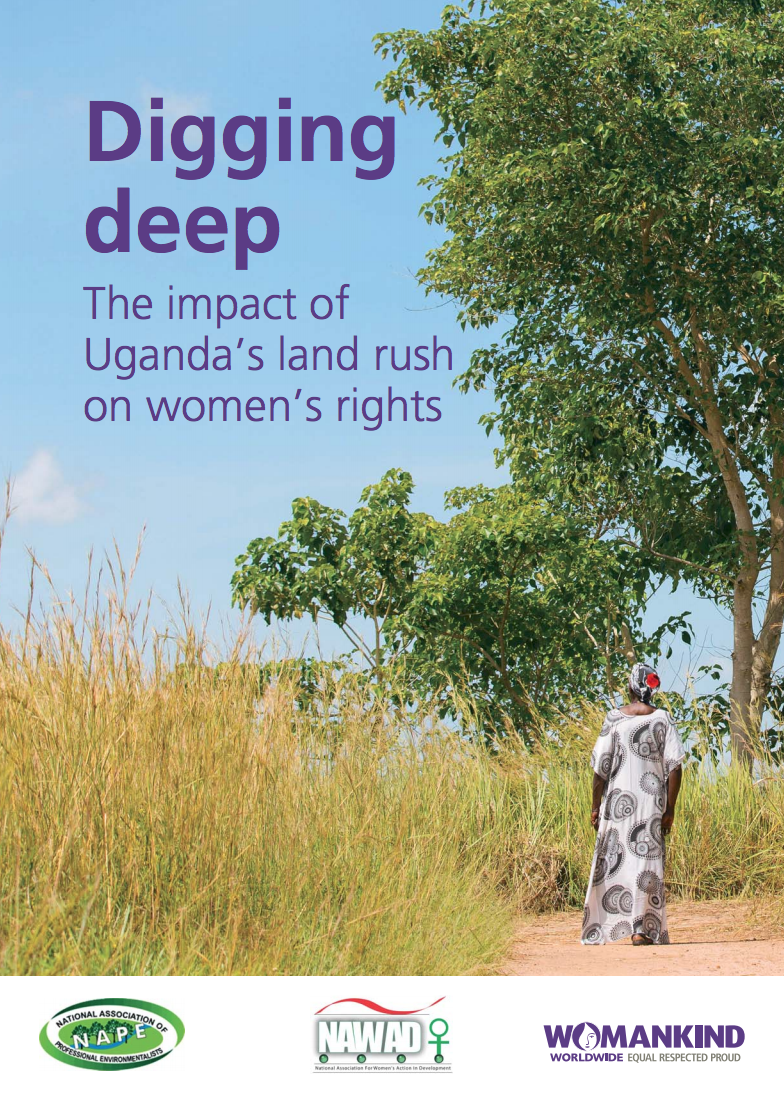Processos e Debates Relacionados com DUATs. Estudos de caso em Nampula e Zambézia
O presente trabalho tem como objectivo compreender o que caracteriza os processos de solicitação, tramitação das solicitações e concessão de DUATs em Moçambique, olhando para diferentes zonas, género, tipo de agricultor e tipo de produção, assim como apresentar as vantagens e desvantagens de registar os direitos, consideradas pelos grupos-alvo entrevistados. O estudo realizado nas províncias de Nampula e Zambézia revela que os processos de concessão de DUATs têm sido diferenciados consoante a zona, o produtor e a autoridade encarregue do processo e a finalidade.








